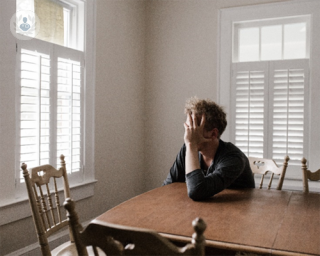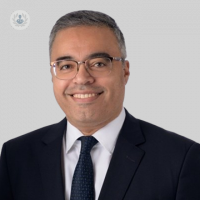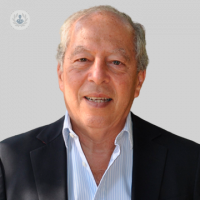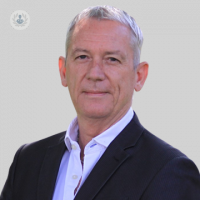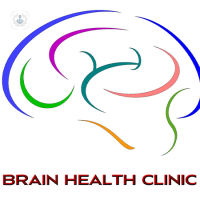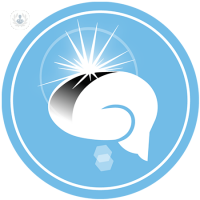Addiction
Dr Oscar D’Agnone - Psychiatry
Created on: 06-20-2016
Updated on: 07-12-2023
Edited by: Karolyn Judge
What is addiction?
Addiction is a complex brain disease where a person compulsively needs to use or take something that has a harmful consequence. Their intense focus on using a substance can take over their life even if they know that their constant use of a drug or alcohol, for example, can cause problems. According to UK charity Action on Addiction, one in 3 people are addicted to something.
Changes in the brain's wiring are what make it difficult for a person to stop using or craving the substance they are addicted to.

What can people be addicted to?
There are different types of addictions. They can be distinguished between physical and behavioural addiction.
Besides addiction to toxic substances, such as alcohol and drugs, there are addictions of other things, such as:
- Food
- Cigarettes
- Sex (nymphomania)
- Gambling
- Exercise (bigorexia)
- New technology (technophilia)
- Mobile phone use (nomophobia)
- Social media
For each individual case, professionals decide on the best treatment, depending on the patient's symptoms and the degree of their addiction.
What are the symptoms of addiction?
The symptoms of addiction can be broken down into three categories:
Psychological symptoms
- The inability to stop using
- Continual use of substances despite other health concerns
- Taking drugs or alcohol to deal with problems
- Obsessed with a substance
- Risk-taking or reckless behaviour - using sex to pay for drugs or stealing, or driving whilst under the influence
- Developing a tolerance and needing to take a higher dosage
Social symptoms
- Social isolation or distancing from friends who don't engage in drugs or alcohol
- Dropping hobbies
- Selling homely possessions in order to keep up drug supplies
- Denial
- Legal issues, such as being arrested
- Financial trouble
Physical symptoms
- Withdrawal symptoms
- Appetite changes, which leads to weight loss or gain
- Diseases, such as lung cancer from smoking hard drugs like crack or heavy nicotine use
- Insomnia
- A change in appearance.
What causes addiction?
Addiction can occur if someone is using drugs or alcohol to self-medicate any psychological pain felt from any traumatic experiences, such as a divorce, the death of a loved one or facing bankruptcy.
Because drugs and alcohol can affect the way that you feel and make you feel enjoyable and relaxed but after you 'come down' from these effects you can be left needing to recreate those feelings again, which creates a vicious cycle of taking more.
In cases of gambling, having a huge win can leave you feeling 'high' and that you want to win more, which can soon develop into a bad habit. An addiction gets out of hand when someone wants to continuously chase that high and feeling of euphoria.
What is a relapse in addiction?
This is when someone who has managed to control or quit their addiction previously, has returned to the thing they were addicted to. A relapse also means that the use level goes back to previous or close to this.
There are several stages to relapse:
Emotional
- Bottling up emotions
- Isolating
- Not going to meetings
- Going to meetings and not sharing
- Focussing on others
- Poor eating and sleeping habits
- Poor self-care
Mental
- Craving for what you're addicted to
- Thinking about people, places and things associated with past use
- Minimising the consequences, or glamourising past use
- Bargaining
- Telling lies
- Thinking of schemes to better control using
- Looking for opportunities to relapse
- Planning a relapse
Physical
This is when use starts again. Once a person does something once, or has one of the things they're addicted to, it may quickly lead to uncontrolled using again. This will usually lead to a mental relapse of obsessive thinking about using, which can eventually lead to physical relapse.
How can someone get help for an addiction?
Addiction is a treatable condition and can be reversed. You can visit your GP for recommendations. There are many services across the UK that help people to recover from addiction. You can also speak to the Samaritans for free on 116 123.
If you are admitted to a treatment program, you might stay as an inpatient in a rehabilitation centre. If you are an outpatient you may attend daily group and individual therapy sessions.
Cognitive behavioural therapy (talking therapy) is used to help overcome addiction.
Specialists can help you to detox from drugs and provide medicines to help, such as methadone for someone who is coming off of heroin.

